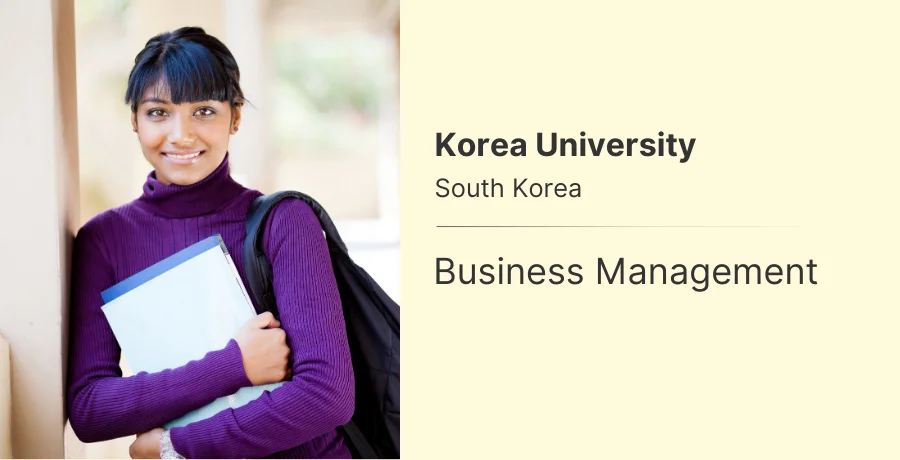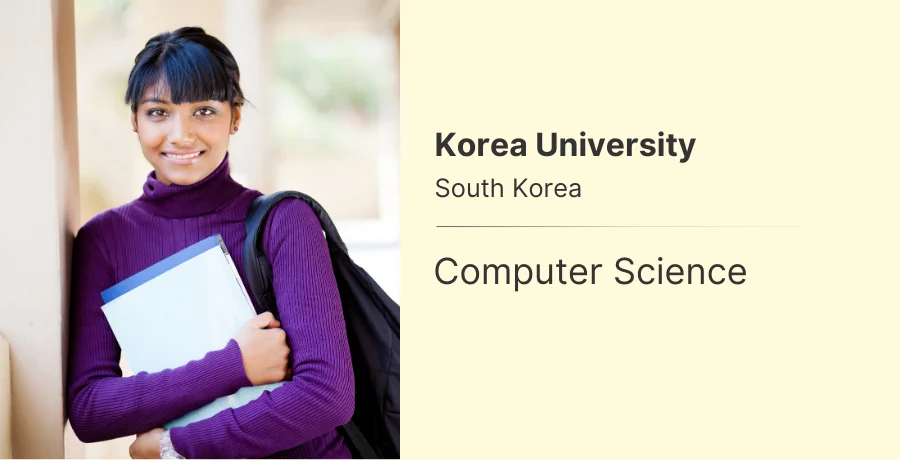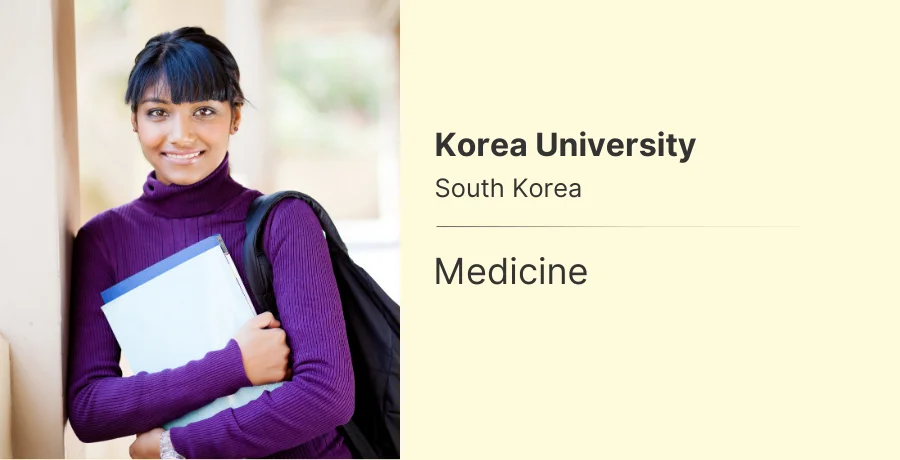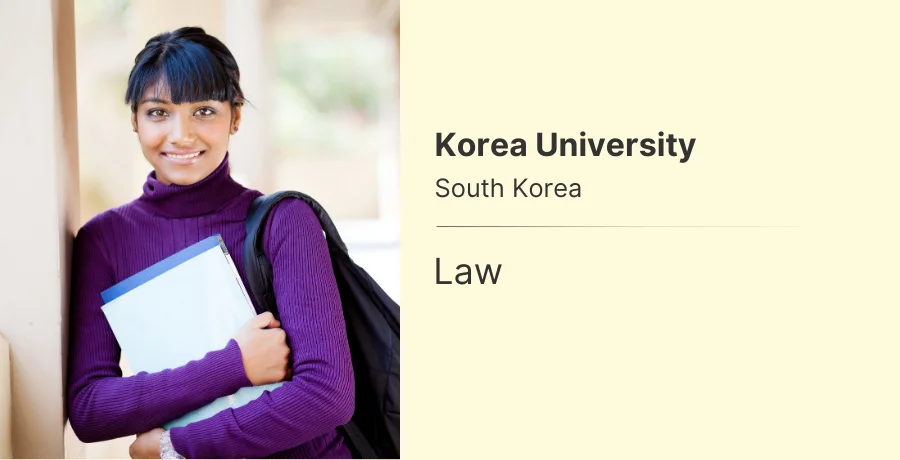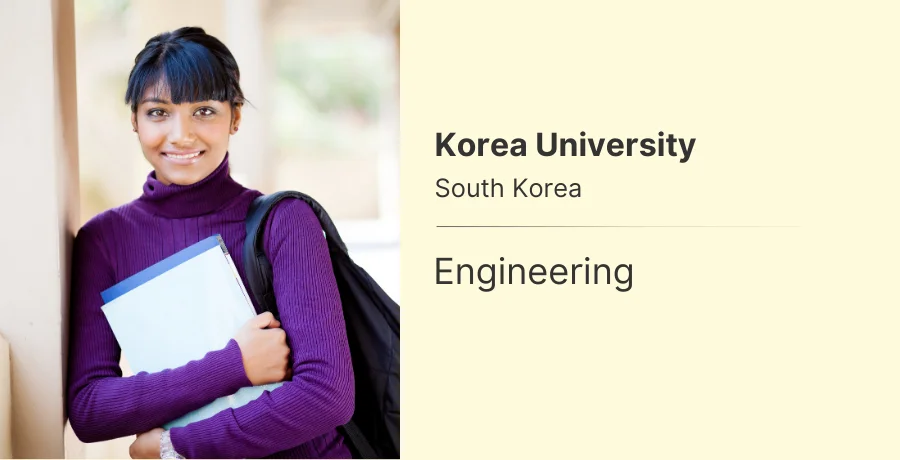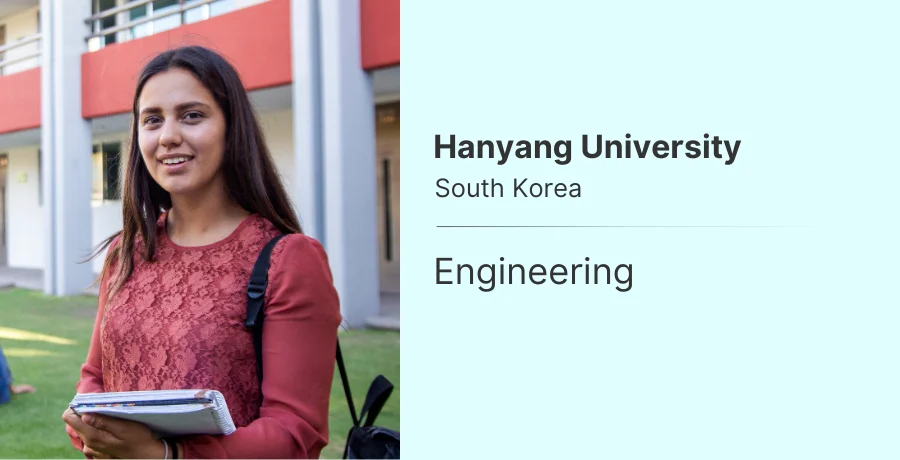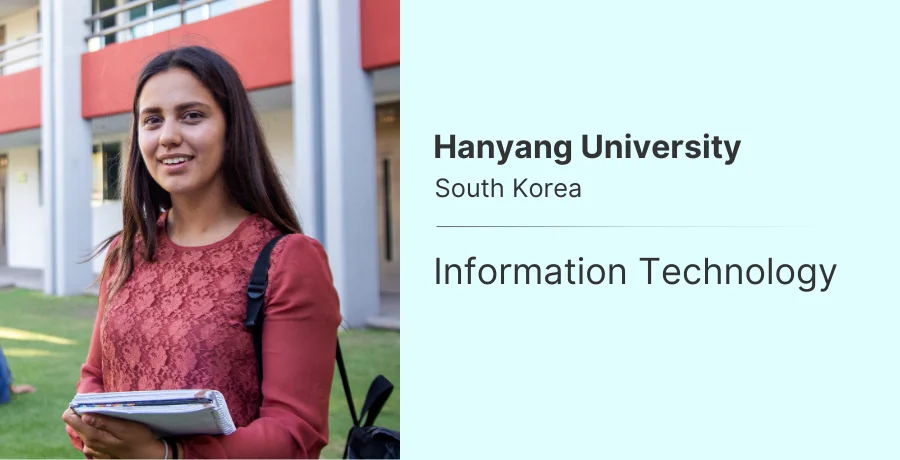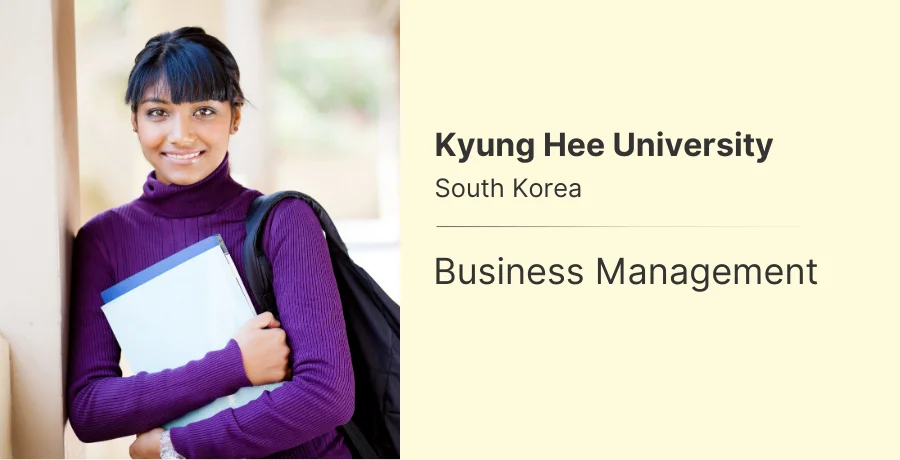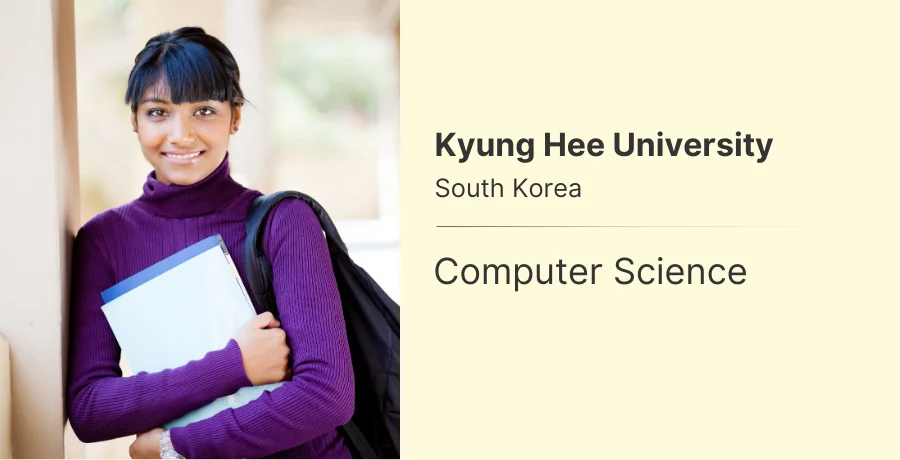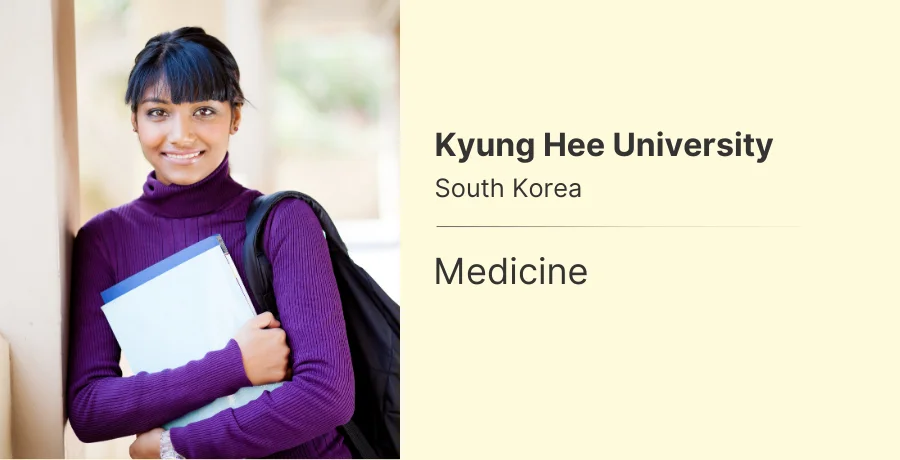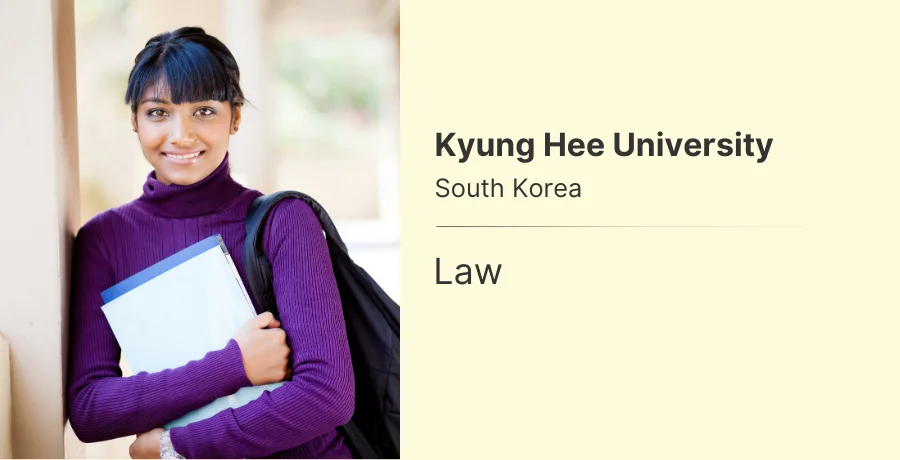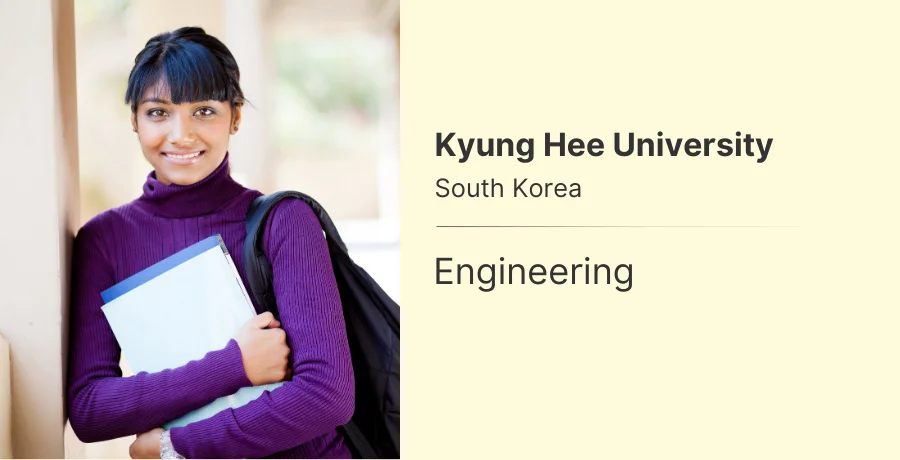Study in South Korea for Indian Students – Highlights
In 2024, approximately 1,328 Indian students were studying in South Korea, accounting for about 0.8% of the total international student population. South Korea has 400+ universities with diverse Engineering, Technology, Business, and Humanities programs. Monthly costs, including accommodation and food, are estimated between₹1.5 lakh to ₹2 lakh, depending on lifestyle and location, and part-time work up to 20 hours/week is allowed.
This article will guide you through everything you need to know about studying in South Korea for Indian Students.
It explains about the best courses, the top universities, and their admission process, fee structure, and scholarships that can reduce the cost of studying in South Korea.
Core Facts About South Korea
Education in South Korea
University / College Stats
Why Study in South Korea for Indian students?
There are various reasons why students opt to study in South Korea. Some of the prominent ones are listed here,
- Top-ranked universities: South Korea is home to top-ranked universities like Seoul National University, Yonsei University, and Korea University, which are ranked 29th, 73rd, and 74th globally.
- Affordable tuition fee: Annual tuition fee for MBBS programs for Indian students in South Korea ranges from₹4.2 lakh to ₹5.8 lakh (approximately ₩6,500,000 to ₩9,000,000), making it more affordable than MBBS in the UK and MBBS in Canada.
- Career Opportunities: Indian students who study in South Korea can stay up to six months to seek employment using a D-10 visa.
- Scholarship Options: South Korea offers numerous scholarships for Indian students. GKS is one of the popular scholarships among Indian students. It is a fully funded scholarship for undergraduate and postgraduate students. It covers tuition, airfare, living expenses, medical insurance, and Korean language training. Approximately 200 undergraduate and 1,080 graduate students benefit from this scholarship annually. There are other university-based scholarships available forIndian students.
- Quality of Life: South Korea is among the safest and most welcoming countries for international and Indian students. South Korea ranks 40th out of 163 countries on the Global Peace Index, indicating high safety and security.
Top 5 Universities in South Korea for Indian Students
1. Seoul National University (SNU)
SNU is South Korea’s most prestigious university, offering80+ academic programs across various fields. SNU is located in Gwanak, Seoul, with advanced research labs, student dormitories, sports facilities, and cultural centers. TheCareer Development Center (CDC) partners with global companies like Samsung, Hyundai, and LG, offering internships, job fairs, and recruitment events.
- QS World University Ranking 2025: 31st globally, 6th in Asia, 1st in Korea
Top Programs at Seoul National University (SNU)
- Engineering: Particularly in Electrical and Computer Engineering.
- Business: International Business Administration programs.
- Social Sciences: Strong programs in Political Science and Sociology
2. Yonsei University
Yonsei University is one of South Korea's oldest and most prestigious private universities, offering over 100 programs across various fields.Located in Sinchon, Seoul, offering modern student facilities, sports complexes, student dormitories, and an international environment.The Career Services department connects students with global firms like Google, McKinsey, and Samsung, organizing career fairs and recruitment events.
- QS World University Ranking 2025: 56th globally
Top Programs at Yonsei University
- Medicine: Yonsei’s College of Medicine is known for its research and clinical training.
- Engineering: Electrical and Electronics Engineering is a popular choice.
- Business: Underwood International College (UIC) is a prestigious undergraduate college within Yonsei University in Seoul, South Korea, known for its Business administration programs.
3. KAIST (Korea Advanced Institute of Science and Technology)
KAIST is South Korea’s leading science and technology university, offering approximately 70 specialized programs in engineering, computer science, biotechnology, and business. Known for its STEM focus, KAIST is highly preferred by Indian students aiming for careers in high-tech industries or research.
- QS World University Ranking 2025: 82nd globally
Top Programs at KAIST
-
Computer Science: Specializing in Artificial Intelligence and Machine Learning.
-
Mechanical Engineering: Focused on robotics and automation.
-
Electrical Engineering: Renowned for semiconductor and nanotechnology research.
4. Korea University
Korea University offers over 70 programs in business, law, engineering, and social sciences. With a long history and strong international presence, Korea University attracts manyIndian students, particularly those interested in pursuing degrees in business, law, and engineering. Korea University’s Career Services department works closely with companies like LG, Hyundai, and SK Group, offering internships, job fairs, and career advice.
- QS World University Ranking 2025: 150–160 globally
Top Programs at Korea University
-
Business: Korea University Business School (KUBS) is one of the top business schools in Korea.
-
Law: Known for its Law School and International Law programs.
-
Engineering: Specializes in Biotechnology and Chemical Engineering.
5. Pohang University of Science and Technology (POSTECH)
POSTECH is a private research university focused on science, engineering, and technology, offering over 50 specialized programs in materials science, physics, and biotechnology.POSTECH’s strong emphasis on research and its collaboration with POSCO make it a prime choice for Indian students interested in advanced scientific fields. Located inPohang, POSTECH offers a research-driven environment with advanced facilities, technical workshops, and strong industry partnerships.
- QS World University Ranking 2025: 98th globally
Top Programs at POSTECH
-
Materials Science: Specializing in nanotechnology and renewable energy.
-
Physics: Focused on condensed matter physics and quantum mechanics.
-
Biological Sciences: Leading research in molecular biology and genetics.
|
Rank |
University |
QS World Rankings |
Average annual tuition fee |
|
1 |
#31 |
₹3,74,000 |
|
|
2 |
#151–160 |
₹4,96,000 |
|
|
3 |
#82 |
₹4,25,000 |
|
|
4 |
#150–160 |
₹4,96,000 |
|
|
5 |
#98 |
₹3,72,000 |
Popular Courses in South Korea
Popular courses for Indian students to study in South Korea include Mechanical Engineering, Electrical Engineering, Business Administration, Environmental and Civil Engineering, Information Technology, and Medical Sciences. These courses align with South Korea's technology, innovation, and academic excellence strengths, offering students diverse opportunities for career growth and specialization in high-demand fields.
- Engineering and Technology
- Computer Science and Information Technology
- Business and Management
- Biotechnology and Life Sciences
- Economics and International Trade
- Korean Language and Cultural Studies
- Design and Media
South Korea – Intakes
South Korea offers multiple intakes for Indian students, mainly in the fall and spring semesters. These intakes correspond to the academic calendars of universities and are designed to accommodate the diverse course offerings, particularly for undergraduate, graduate, and postgraduate programs. Some universities also offer special intakes for language programs or short-term courses. Indian students should be aware of the application deadlines and prepare their documents and exam scores well in advance. Scholarships like the Global Korea Scholarship (GKS) and university-specific funding opportunities are available to help make studying in South Korea more affordable.
Below is a detailed explanation of the intake process in South Korea:
| Intake | Application Period | Commencement of Classes | Programs Offered | Key Features |
|---|---|---|---|---|
| Spring Intake | September to December (Previous Year) | March (Following Year) | Undergraduate, Master’s, Doctoral | Most popular intake for undergraduate and graduate courses. - Ideal for Indian students starting the academic year inMarch. - Popular for engineering, business, social sciences, and medical sciences. |
| Fall Intake | March to June (Same Year) | September (Same Year) | Graduate Programs (Master’s, Ph.D.) | Ideal forgraduate-level courses. - Offers courses in engineering, business administration, technology, and design. - Popular for Indian students pursuing advanced studies. |
| Special Intakes | Varies (Often Summer/Winter) | Varies (Specific start dates) | Short-term, Language Programs, Special Programs | Language programs are offered year-round. - Short-term programs for those looking to improve skills or pursue specific research. - Summer/Winter sessions may be available. |
Cost of Studying in South Korea
South Korea is known for providing a high-quality education at relatively affordable prices compared to studying in the UK and studying in the USA. The cost of studying in South Korea for Indian students includestuition fees, living expenses, and other miscellaneous costs.
1. Tuition Fees in South Korea for Indian Students
Tuition fees in South Korea can vary depending on the university, program, and level of study (undergraduate, graduate, or doctoral). On average, the tuition fees for Indian students range from ₩4,000,000 to ₩8,000,000 per year (approximately ₹2,60,000 to ₹5,20,000).
| Level of Study | Tuition Fees (KRW) | Tuition Fees (INR) |
|---|---|---|
| Undergraduate | ₩4,000,000 to ₩6,500,000 | ₹2,60,000 to ₹4,25,000 |
| Master’s Degree | ₩6,500,000 to ₩8,000,000 | ₹4,25,000 to ₹5,20,000 |
| Doctoral Degree | ₩7,000,000 to ₩10,000,000 | ₹4,60,000 to ₹6,50,000 |
Popular Universities like Seoul National University (SNU), KAIST, and Yonsei University typically have tuition fees around ₩7,000,000 - ₩8,000,000 for international students. Private Universities may charge higher fees, while public universities generally offer more affordable options for Indian students.
2. Living Expenses
Living expenses in South Korea depend on the city you live in and your lifestyle. On average, Indian students spend between ₩1,000,000 and ₩1,500,000 per month (approximately ₹65,000 to ₹97,000) on living costs, which include accommodation, food, transportation, and personal expenses.
| Expense | Cost (KRW) | Cost (INR) |
|---|---|---|
| Accommodation | ₩300,000 - ₩500,000/month | ₹20,000 - ₹33,000/month |
| Food | ₩200,000 - ₩300,000/month | ₹13,000 - ₹20,000/month |
| Transportation | ₩50,000 - ₩100,000/month | ₹3,000 - ₹6,500/month |
| Personal Expenses | ₩100,000 - ₩200,000/month | ₹6,500 - ₹13,000/month |
Accommodation:
-
On-campus dormitories are usually more affordable, with fees ranging from ₩300,000 to ₩500,000 per month (₹20,000 to ₹33,000).
-
Off-campus housing can be more expensive, especially in Seoul or Busan, with rents ranging from ₩500,000 to ₩1,000,000 per month (₹33,000 to ₹65,000).
Food:
-
Students typically spend around ₩200,000 to ₩300,000 per month (₹13,000 to ₹20,000) on food. South Korea offers affordable and diverse street food and dining options, with meals ranging from ₩2,000 to ₩10,000 (₹130 to ₹650) per meal.
Transportation:
-
Public transport is efficient and affordable, with a monthly transportation cost of approximately ₩50,000 to ₩100,000 (₹3,000 to ₹6,500).
3. Other Miscellaneous Costs
-
Student Health Insurance: South Korea requires international students to have health insurance, which typically costs around ₩100,000 to ₩200,000 per year (₹6,500 to ₹13,000).
-
Books and Supplies: On average, students spend around ₩100,000 to ₩150,000 (₹6,500 to ₹10,000) annually on books and study materials
Scholarships for Indian Students in South Korea
As of 2025, Indian students who wish to study in South Korea have access to several prestigious scholarships that offer comprehensive financial support. Below is a detailed overview of the top scholarships available:
1. Global Korea Scholarship (GKS)
-
Administered by: National Institute for International Education (NIIED), South Korea
-
Available for: Undergraduate, Master’s, PhD, and Research programs
-
Benefits:
-
Full tuition coverage
-
Monthly allowance: ₩1,000,000 (undergraduate), ₩1,300,000 (graduate)
-
Round-trip airfare
-
Korean language training fee
-
Medical insurance
-
Resettlement allowance
-
2. Korean Government Scholarship Program (KGSP)
-
Administered by: South Korean Government
-
Available for: Undergraduate, Master’s, and PhD programs
-
Benefits:
-
Up to KRW 1,800,000 monthly allowance
-
Full tuition coverage
-
Round-trip airfare
-
Medical insurance
-
Living expenses
-
-
Application Process: Apply through the Korean Embassy in India or directly to universities
3. KAIST Scholarship
-
Administered by: Korea Advanced Institute of Science and Technology (KAIST)
-
Available for: Graduate programs (Master’s and PhD)
-
Benefits:
-
Varies (covers tuition fees and living expenses)
-
Monthly allowance
-
Research funding
-
Travel expenses for academic conferences
-
-
Application Process: Apply directly through KAIST’s Graduate School Admission portal
4. Seoul National University (SNU) Scholarships
-
Administered by: Seoul National University (SNU)
-
Available for: Undergraduate, Master’s, and PhD programs
-
Benefits:
-
Varies (based on merit and financial need)
-
Full or partial tuition coverage
-
Living stipend
-
Accommodation support
-
Medical insurance
-
-
Application Process: Apply through the Office of International Affairs at SNU
5. Yonsei University Scholarships
-
Administered by: Yonsei University
-
Available for: Undergraduate and Graduate programs
-
Benefits:
-
Varies (e.g., Yonsei International Scholarship)
-
Full or partial tuition coverage
-
Monthly living stipend
-
Accommodation support
-
|
Scholarship Name |
Maximum Amount (per month) |
|
Global Korea Scholarship (GKS) |
Up to ₩1,800,000 KRW |
|
Korean Government Scholarship Program |
Up to ₩1,800,000 KRW |
|
KAIST Scholarship |
Varies (covers tuition and living expenses) |
|
Seoul National University Scholarships |
Varies (based on merit and need) |
|
Yonsei University Scholarships |
Varies (e.g., Yonsei International Scholarship) |
Student Visa in South Korea
|
Cost of Visa Application |
$50 to USD 80 |
|
When to Apply |
Ideally,3 to 4 months before your intended study start date. However, you can apply up to 90 days before your program begins. |
|
Visa Processing Time |
Approximately 4 working days (no urgent or express service available) |
Documents Required for Visa Application
This is the list of documents required for Indian students applying for a student visa to study in South Korea:
- Application Form
- Passport
- Passport-Sized Photographs
- University Offer Letter
- Financial Proof
- Police Clearance Certificate (PCC)
Required Entrance Exams for Indian Students in South Korea
Indian students are required to take specific entrance exams depending on the Language of Instruction and the Level of study. Here are the key requirements:
1. English-Taught Programs:
If you are applying for programs taught in English, you’ll likely need to submit TOEFL scores. The minimum required scores are:
- Undergraduate and Master’s level: TOEFL 71
- PhD level: TOEFL 79
2. Korean-Taught Programs:
For programs taught in Korean, you must take the Test of Proficiency in Korean (TOPIK) and submit your results along with your application.
3. Other Standardized Tests:
Depending on the university and program, additional standardized tests like the SAT or ACT might be required for undergraduate admissions.
Work Opportunities in South Korea
After graduating from universities in South Korea, international students have access to various work opportunities. Whether you’re interested in starting your career in a multinational corporation, a small start-up, or any other field, there’s something for everyone in South Korea’s diverse job market.
|
Job Roles (Top 10) |
Maximum Salary (per year) |
|
Executive Management |
₩147 million (approx. USD 150,000) |
|
Members of the Diet |
₩140 million (approx. USD 142,000) |
|
Maritime Pilot |
₩126 million (approx. USD 128,000) |
|
Surgeon |
₩110 million (approx. USD 112,000) |
|
Dental Surgeon |
₩107 million (approx. USD 109,000) |
|
Airplane Pilot |
₩104.7 million (approx. USD 106,000) |
|
Ophthalmologist |
₩104.2 million (approx. USD 106,000) |
|
Physician |
₩95 million (approx. USD 96,000) |
|
Korean Medicine Doctor |
₩92.23 million (approx. USD 94,000) |
|
Upper-Level Civil Servant |
₩92.01 million (approx. USD 93,000) |
